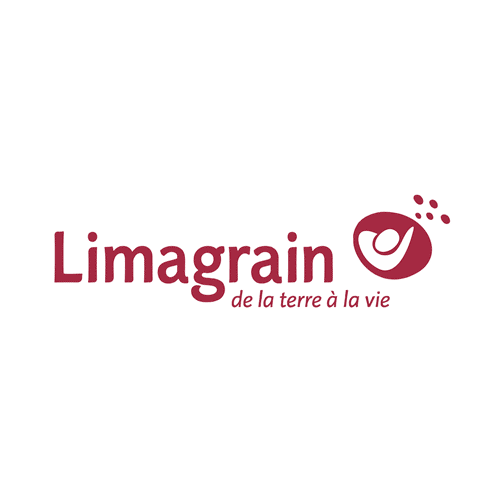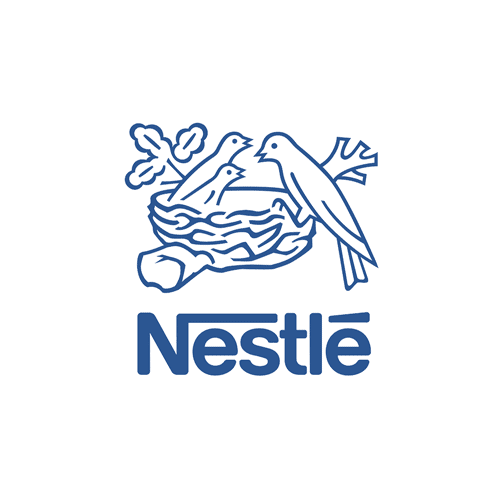
Plant proteins

The plant protein market is experiencing strong growth, notably driven by research in meat substitutes and by the development of new consumption patterns: veganism or flexitarianism, for example. Alcimed’s Agrifood team supports its clients in the analysis of the plant protein and alternative protein market, in the exploration of technologies and applications associated with these proteins, in the development of plant-based products, and other innovation and new business development projects!
They trust us











The challenges related to plant proteins and meat substitutes
The plant protein market will continue to grow in years to come. However, this will require a number of challenges to be met in animal feed as well as in human food.
The challenges facing plant proteins in animal feed
In the animal sector, the main challenge with plant proteins lies in improving the protein autonomy of livestock farming. World livestock farming – especially in Europe – is highly dependent on the import of protein-rich materials from a few producing countries, such as soybean meal produced in Brazil. There are two major problems with such dependence: food sovereignty and, above all, the environmental impact of imported proteins, which contribute to deforestation, forest degradation, and the destruction of natural ecosystems in some producing countries.
In France, for example, the Ministry of Agriculture and Food announced in 2020 a “plant protein plan” of 100 million euros, which mainly aims to respond to this challenge of protein independence.
The challenges facing plant proteins in human food
In human food, the challenges are more diverse:
the main concern, as for the animal feed market, remains the environmental footprint. Substituting animal proteins with imported plant proteins which have travelled halfway round the planet before arriving on a plate, will only have a limited, if not negative, ecological impact.
It is therefore important to structure or to help the emergence of local plant protein sectors, by encouraging upstream agriculture to produce protein-rich crops in an economically competitive manner, and by investing in industrial efficient tools in the territories. Another important part of this equation is the efficiency of the processes for transforming raw protein materials into concentrates or isolates. Research must focus on reducing water and energy consumption and increasing recovery yields.
What are the levers to reduce the environmental footprint of plant proteins? How do we promote the development of local sectors and make transformation processes more sustainable?
Although these sources of protein have seen a renewed interest over the past decade, they currently represent only about 30% of the total protein intake of an average individual in France, while the Plan National Nutrition Santé (PNNS) recommends 50%. This observation is paradoxical: while plant proteins enjoy a positive image with consumers (mainly for environmental reasons), the current range of steaks, drinks, desserts, plant-based cheeses, etc. does not seem to fully meet their needs. Three major issues help to understand this observation:
Taste: beyond the fact that some consumers simply prefer the taste of meat or the taste of cow’s milk, plant proteins have organoleptic properties (green notes, smell of cut grass, bitterness, or astringency) which can reduce taste pleasure and thus curb purchasing.
Texture: efforts from researchers and start-ups over many years to mimic the texture of meat with animal protein are only just starting to pay off. The latest products from companies like Beyond Meat and Les Nouveaux Fermiers have an aspect that is noticeably similar to meat, but previous generations of meat substitutes were far from being so appetizing. The consumer has kept in mind the image of a “distant imitation” of the real product of animal origin.
Clean label: products formulated with plant proteins are generally penalized – compared to products of animal origin – by the presence of additives (stabilizers, texturizers, preservatives, etc.) which considerably extend the list of ingredients. However, while consumers see the presence of plants in a positive light, the presence of additives goes against their expectations in terms of naturalness.
How can we better meet consumer expectations in terms of taste, texture, and naturalness with products made from plant proteins?
The nutritional quality of plant proteins is currently and generally considered inferior to that of animal proteins. They have, on average, a lower digestability because they have deficiencies in “essential amino acids”. To overcome this barrier, research on the selection of varieties with an optimal protein composition must continue, as well as R&D on plant protein ingredients with high nutritional value and in particular with high PDCAAS (Protein Digestibility Corrected Amino Acid Score), a marker of digestibility and protein quality. One of the solutions is also to combine different sources of plant protein. This is the case with Roquette, for example, which has worked extensively on the formulation of analogues to dairy products combining pea and wheat proteins.
What are the agronomic and technological innovations that will allow the emergence of plant protein ingredients with high nutritional value?
During the transformation of the raw plant into an isolate or protein concentrate, proteins undergo structural modifications that affect their functionality. Players such as Danone Nutricia or Nestlé Health Science are starting to invest in the specialized nutrition segment with products containing plant proteins rather than milk proteins, but their R&D are facing problems of solubility of plant proteins in suspension, denaturation during heat treatments or aggregation and freezing caused by protein-mineral interactions.
The challenge now lies in developing cold transformation processes, in order not to denature the proteins and to produce isolates with high functional value (while guaranteeing their food safety).
What technologies will make it possible to produce plant proteins with the same functional properties than animal proteins?
How we support you in your projects related to plant proteins or meat substitutes
Alcimed works with many industrial players who produce raw plant proteins or who use them in their formulations. The proximity with these players allows us to stay up-to-date with industrial challenges, technological advances, and consumer trends in this market.
We support our clients in different types of projects:
- Market analysis of meat substitute protein sources: to understand, for example, the structure of the value chain, the competitive environment, the existing offer, the expectations of the demand, or to have a vision of volumes, the prices, and their dynamics;
- Exploration of technologies and applications associated with these proteins, to choose the most relevant industrial options from a technico-economic point of view or to find new markets for existing products or those under development;
- Design and development of new plant-based product offers to better meet the expectations of their clients (manufacturers or end consumers);
- Support for the structuring of plant protein sectors with public or semi-public players;
- And any other innovation and business project development project.
Our team works with producers of plant proteins (Bunge, Cargill, DSM, Dupont, Roquette, the Soufflet Group, etc.), the users of these proteins in human food and animal feed (the CCPA Group, Danone, Dianapetfood, Mars, Neovia, Nestlé, Purina, Savencia, etc.), teams of start-ups in the field, and public or semi-public players such as competitiveness clusters.
Examples of recent projects carried out for our clients in plant-based proteins
Technological scouting and study of the "processability" of plant proteins for applications in infant formulas
Alcimed has supported a B2C industrial player specializing in infant nutrition in the identification and evaluation of technologies to ensure the food safety of plant protein isolates or concentrates, and to dissolve and stabilize them in a matrix with a view to the formulation of finished products.
Our team initially carried out a state of the art of the available technologies and their level of maturity via an in-depth investigation of the scientific literature and patent databases. We continued our investigation to analyze the technical feasibility of these processes within the framework of a production process for infant products.
This project enabled our client to select 2 promising technologies for the development of its infant formulations.
Market study and wargame exercise to understand the impact of the arrival of a new player on the business of a leader in alternative plant-based milks
Our client, a leading industrial player in the alternative plant-based milks segment, asked our team to assess the level of risk on its activities following the entry into the competition of a new player in the field of plant-based alternatives to dairy products.
We conducted an in-depth investigation of the UHT ultrafiltered or sterilized plant-based milks market in several countries: France, Spain, Italy, and China. Understanding the dynamics of each market and the forces involved then enabled us to organize a wargame with our client’s teams to project competing strategies in each market and, ultimately, to build a strategy and a priority action plan for each team (marketing, sales, regulatory affairs, R&D, etc.) to be implemented over the next 6 months.
Support for the creation of an R&D pipeline of enzymes intended for “meat & milk substitutes” applications to develop new offers
An international leader in the segment of enzymes for the agrifood industry asked our team to help develop its product offering for “plant substitutes to meat” applications (vegetable steaks, vegetable nuggets, etc.) and “plant-based milks” (soy milk, almond milk, etc.).
The first step of our project consisted in carrying out a field investigation aimed at understanding the needs and expectations of B2C players toward ingredient manufacturers for the years to come, thus allowing us to categorize avenues for new offers for our client into 4 main themes: improve the nutritional profile, improve taste & texture, offer “clean label” products, and optimize production costs.
We then transposed these needs into specifications for our client’s R&D team to plan the development of enzymatic solutions adapted to the challenges of current or future market players. Our team finally translated these specifications into a list of R&D projects, prioritized according to the capabilities and challenges of our client.
Prospective study of possible strategic avenues to disrupt the future of the protein market
Alcimed has helped a major B2B player in the agrifood industry to build an exhaustive panorama of “proteins of the future” and their value chains in order to identify strategic avenues for development in this market. While our client was closely monitoring trends related to the boom in plant proteins, it wanted to have a long-term view on alternative protein sources – from plants, but also from insects, yeasts, bacteria, etc. – to identify opportunities for strategic development. Our project also aimed to understand the degree of integration of our client in these new value chains: buyer, producer, or strategic partner.
After having identified and evaluated the advantages and disadvantages of alternative protein sources considered to be promising in the long term, our team reconstituted the value chains (inputs, process, products, applications & markets) of around thirty proteins (plant proteins, insect proteins, proteins from animal by-products, and proteins from microorganisms and/or bioprocesses).
The results of our project have made it possible for us to define or to project our client’s position on these alternative protein sources so as to maintain a competitive advantage today and in the long term.
You have a project?
To go further
Cross-sector
How to accelerate the deployment of plant-based proteins in France?
What are the benefits of plant proteins? What are the issues in the mass deployment of plant proteins in France?
Agrifood
From dairy to plant-based: why go for plant-based alternatives?
Considered as one of the most competitive dairy industries in the world, French dairy collected 32.8 billion liters in 2019, supplying more than 90% of the French people’s consumption. However, the ...
Agrifood
3 Areas of Innovation in the Plant-based Meat Sector
Plant-based meats are food products that emulate the aesthetic, texture, and flavor of real meat. Compared to animal meat, plant-based meat claims to be better for the environment, more ethical, and ...
Founded in 1993, Alcimed is an innovation and new business consulting firm, specializing in innovation driven sectors: life sciences (healthcare, biotech, agrifood), energy, environment, mobility, chemicals, materials, cosmetics, aeronautics, space and defence.
Our purpose? Helping both private and public decision-makers explore and develop their uncharted territories: new technologies, new offers, new geographies, possible futures, and new ways to innovate.
Located across eight offices around the world (France, Europe, Singapore and the United States), our team is made up of 220 highly-qualified, multicultural and passionate explorers, with a blended science/technology and business culture.
Our dream? To build a team of 1,000 explorers, to design tomorrow’s world hand in hand with our clients.
Plant proteins are proteins (i.e., complex chains of amino acids) obtained from the transformation of plants (e.g.: soybean, rapeseed, wheat, peas, alfalfa). They constitute one of the subgroups of the large family of “alternative proteins”, which includes all the protein sources considered as substitutes for animal proteins: plant proteins, of course, as well as those derived from insects, algae, yeasts, or other microorganisms.
Among the sources of plant proteins, soy is the most commonly used globally and has been the most extensively researched by scientists.


